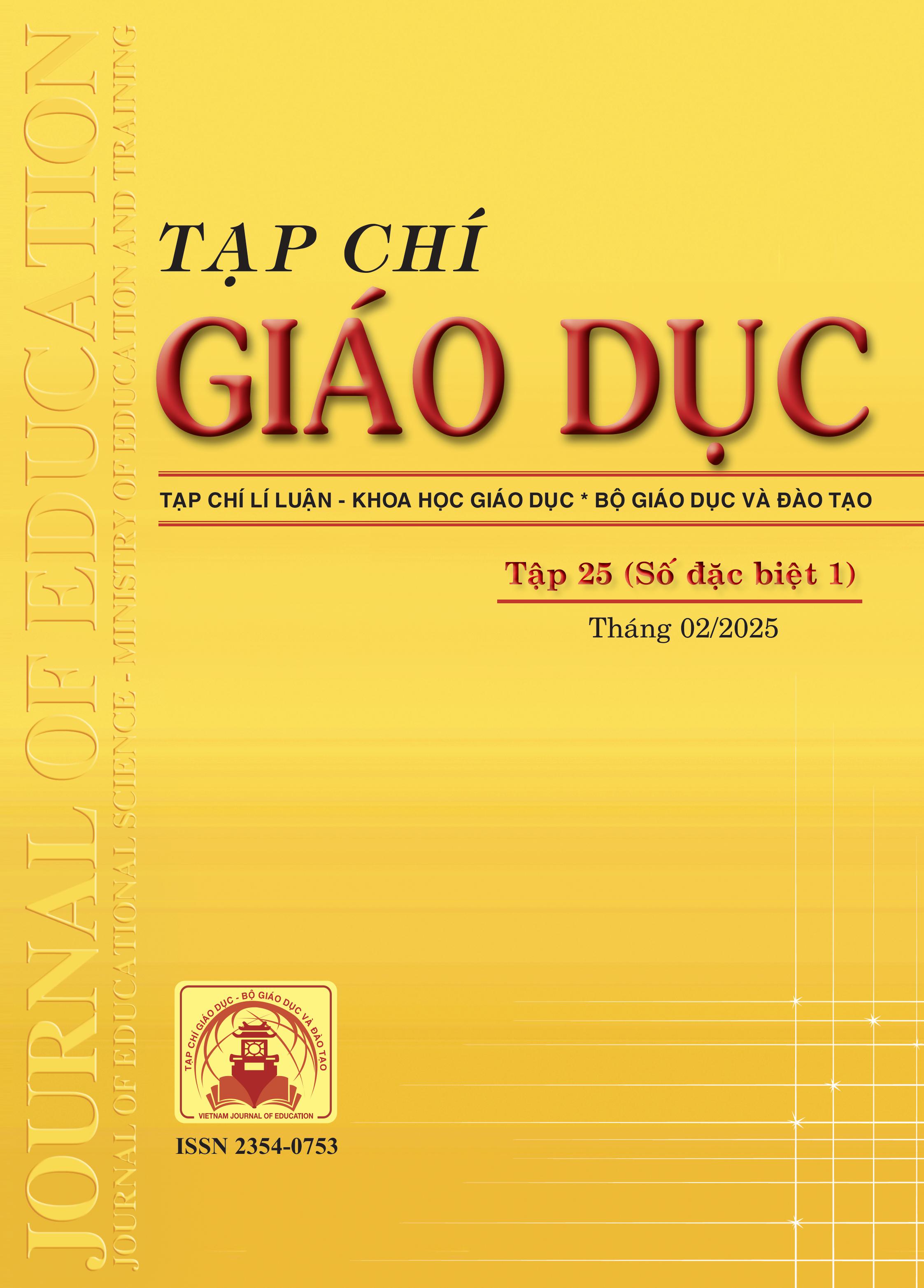Tổng quan các nghiên cứu về quản lí giáo dục đạo đức cho học sinh ở các trường tiểu học trong bối cảnh đổi mới giáo dục
Tóm tắt
Moral education plays an important role in forming personality and life values for students in general and for primary school students in particular. This education helps students develop comprehensively, not only in terms of knowledge but also in terms of personality and morality. The article synthesizes the authors' research related to the current status of moral education and the management of ethical activities in primary schools, including successes and challenges being encountered. Many schools have made significant efforts, but there are still many limitations in teaching methods and content. Moral education activities have been applied, from integration in subjects to organizing extracurricular activities. These methods all aim to help students understand and practise basic moral values. In addition, moral education for students is also influenced by factors that affect the effectiveness of moral education, including support from family, school, and the community. The coordination between these factors plays a key role in building a healthy educational environment. Through the results of the overall analysis, the author inherits the strengths and proposes research directions related to the management of educational activities in the context of educational innovation.
Tài liệu tham khảo
Bộ GD-ĐT (2007a). Quyết định số 51/2007/QĐ-BGDĐT ngày 31/8/2007 ban hành Điều lệ trường tiểu học.
Bộ GD-ĐT (2007b). Đạo đức và phương pháp giáo dục đạo đức. NXB Giáo dục.
Đặng Vũ Hoạt, Phó Đức Hòa (2009). Giáo dục học Tiểu học 1 (Sách dùng cho hệ cử nhân giáo dục Tiểu học). NXB Đại học Sư phạm Thành phố Hồ Chí Minh.
Devine, S. (2006). What is moral education. Information for Social Change, 2(3), 67-74.
Gang, L., & Qing, L. (2016). On the Management of Ideological and Moral Education of Middle School Students. DEStech Transactions on Social Science Education and Human Science, icaem. https://doi.org/10.12783/dtssehs/ icaem2016/4267
Hà Thế Ngữ, Nguyễn Văn Đĩnh, Phạm Thị Diệu Vân (2001). Giáo dục học. NXB Giáo dục. Kolb, D. A. (1984). Experiential Learning: Experience as the Source of Learning and Development. Englewood Cliffs, NJ: Prentice Hall. Mai, D. T., & Nguyen, V. H. (2017). Moral Education through experience at high school in Ho Chi Minh City: a expert based evaluation. Proceedings of the International Conference on training and retraining of general teachers, general education managers and pedagogical teachers.
Ngô Văn Quyết (2020). Thực trạng công tác giáo dục đạo đức cho học sinh tại các trường trung học phổ thông huyện Bù Đăng, tỉnh Bình Phước. Tạp chí Giáo dục, số đặc biệt tháng 5, 275-278.
Nguyễn Thành Tú, Trần Duy Bình (2019). Thực trạng công tác giáo dục đạo đức cho học sinh tại các trường trung học phổ thông huyện Châu Đức, tỉnh Bà Rịa - Vũng Tàu. Tạp chí Giáo dục, số đặc biệt tháng 5, 78-82.
Nông Thị Trang (2019). Giáo dục đạo đức cho học sinh tiểu học qua truyện sinh hoạt trong sách giáo khoa Tiếng Việt. Tạp chí Giáo dục, 449, 16-19.
Phạm Thị Kim Thuỷ (2019). Thực trạng quản lí giáo dục đạo đức cho học sinh tại các trường tiểu học huyện Bình Chánh, Thành phố Hồ Chí Minh. Tạp chí Giáo dục, số đặc biệt tháng 4, 41-45.
Phùng Đình Mẫn, Văn Tám (2020). Thực trạng và biện pháp quản lí công tác giáo dục đạo đức cho học sinh các trường trung học cơ sở huyện Sơn Tây, tỉnh Bình Định. Tạp chí Giáo dục, 478, 55-59.
Quốc hội (2000). Nghị quyết số 40/2000/NQ-QH10 ngày 09/12/2000 về đổi mới chương trình giáo dục phổ thông.
Watson, M. (2008). Developmental discipline and moral education. Handbook of Moral and Character Education, 175-203. Wilson, J. (2000). Methodology and moral education. Oxford Review of Education, 26(2), 255-262.
Đã Xuất bản
Cách trích dẫn
Số
Chuyên mục
Giấy phép

Tác phẩm này được cấp phép theo Ghi nhận tác giả của Creative Commons Giấy phép quốc tế 4.0 .












